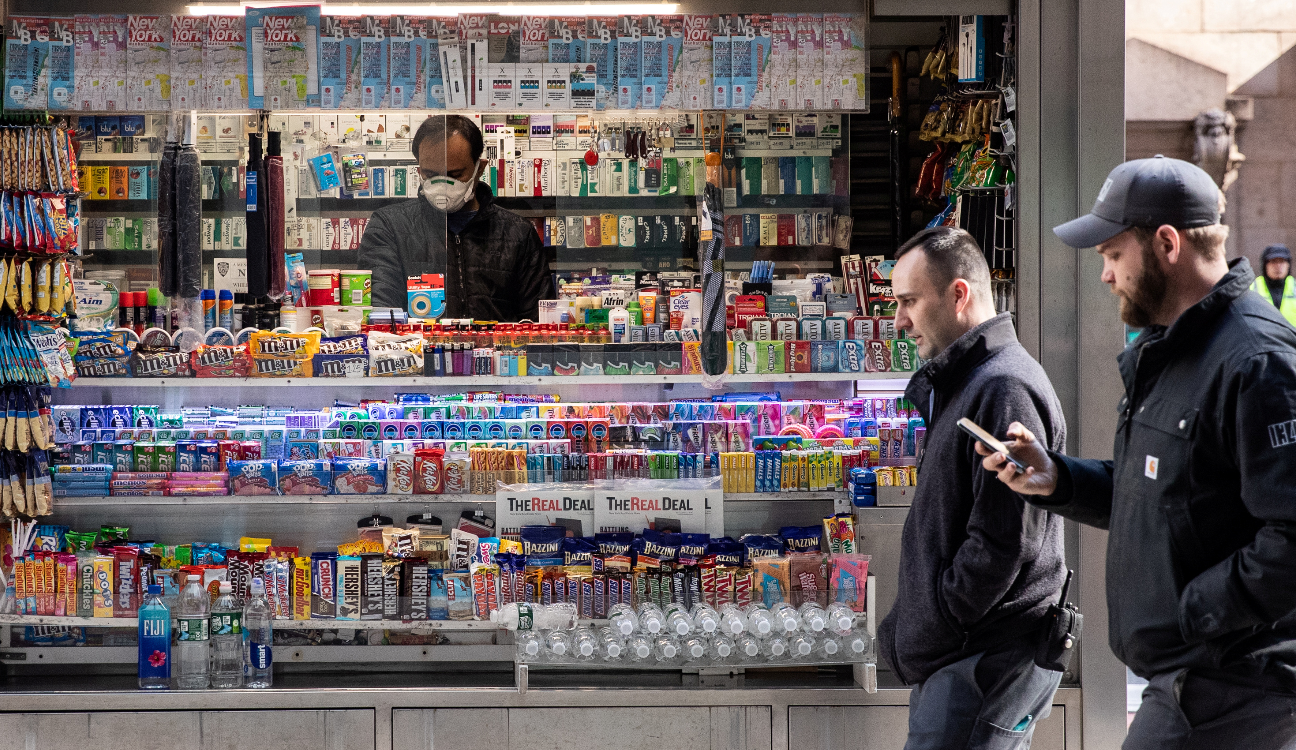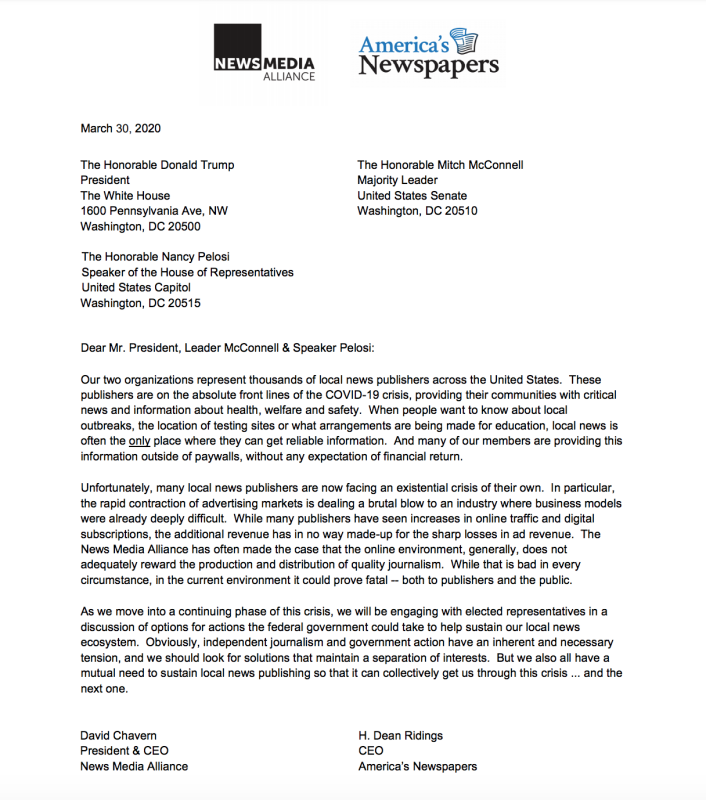
US news publishers are demanding help from the president and tech companies as many fear being wiped out “within weeks” by the effects of the coronavirus (Covid-19) pandemic.
While many American news websites are reporting record online readership, advertising revenues are said to have fallen by as much as 50 per cent since Covid-19 shut down large swathes of the economy.
Industry bosses have written to Donald Trump to warn of publishers’ “existential crisis”, which they say has been brought about by Google and Facebook’s advertising domination – an issue laid bare by Press Gazette’s Duopoly campaign – and intensified by the economic impact of coronavirus.
David Chavern, head of America’s News Media Alliance, told Press Gazette: “I think as this crisis evolves, if we don’t get material help soon from both the federal government and from better business arrangements with the [tech] platforms, then you’re going to start seeing local publishers going out of business certainly within months – maybe within weeks.” Similar concerns have been raised for hyperlocal publishers in the UK.
Chavern and Dean Ridings, the chief executive of America’s Newspapers, this week wrote to the US president to highlight the concerns of their industry.
“While many publishers have seen increases in online traffic and digital subscriptions, the additional revenue has in no way made up for the sharp losses in ad revenue,” they said.
“The News Media Alliance has often made the case that the online environment, generally, does not adequately reward the production and distribution of quality journalism. While that is bad in every circumstance, in the current environment it could prove fatal – both to publishers and the public.”

Chavern told Press Gazette that some in the industry want the federal government to increase its public health advertising budget.
“This would not only inject much needed ad revenue into the local news ecosystem, but also carry out a public purpose – educating the public,” he said.
“We need to have these discussions with the federal government in short order, because we are seeing dramatic and immediate impacts on news publishing. At a time when people are living and dying depending on what [information] they get.”
Chavern added: “This is an industry that was in a weak position going into Covid-19. And then there’s been this huge ad contraction.
“We’re seeing estimates of 30-50 per cent contraction in ad revenue, which is just brutal to an already difficult business model. But it’s happening at a time when particularly local news is providing critical information to people. ”
John Stanton, head of the Save Journalism Project, describes the current state of American journalism as a “bloodbath”, pointing to various budget cutbacks and closures in recent days and weeks.
Stanton set up the Save Journalism Project, which is concerned by big tech companies’ dominance over the advertising market, after being laid off by Buzzfeed in a wide-scale job cull last year.
He fears that the economic impact of coronavirus will exacerbate the situation and increase the number of areas of the country that are not covered by journalists. “We’re already seeing news deserts expand in this country, and it’s just going to get worse,” he said.
In addition to the marketing budgets of would-be clients being diminished by their economic troubles, publishers have also been hit financially by technology that blocks adverts from appearing alongside content that is not considered “brand safe” – including coronavirus.
The issue has been highlighted by Jason Kint, the head of publisher trade body Digital Content Next.
In an open letter published on Ad Week, he has pleaded with the ad tech and verification industry – made up of Google, Oracle, Double Verify and IAS – to “immediately exempt premium, trusted media properties by default from their brand safety filters around coronavirus, Covid-19, and related keywords and topics”.
He has also asked leaders in the ad industry to explain to clients how “factual news coverage of this coronavirus and Covid-19 needs to be supported”, and said that “responsible brands should be in and around news and to immediately review any advertiser-specific keyword list so that advertising in news is not blocked”.
More broadly, Kint – like Chavern and Stanton – is concerned by the fact that the advertising market is dominated by Google and Facebook, despite the fact they rely on news publishers for content.
Facebook has offered financial assistance to help the news industry cope with the coronavirus fallout in the form of a $100m grant scheme. But none of the three industry figures spoken to by Press Gazette were convinced.
Chavern described the pledge of funds“at a macro level, a drop in the ocean”. Stanton dismissed it as a “PR move” that “isn’t enough to do anything – it sounds like a lot, but when you consider the scope of the problem that they’ve caused, it’s pennies”.
And Kint said: “Frankly, anything that’s being done now to support journalism, particularly local journalism, right now is a positive. It’s appreciated.
“But there are much larger concerns right now, and some of those concerns are very much tied to the exact same companies that are giving out the grant money.”
Email pged@pressgazette.co.uk to point out mistakes, provide story tips or send in a letter for publication on our "Letters Page" blog
